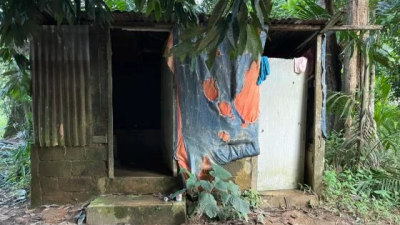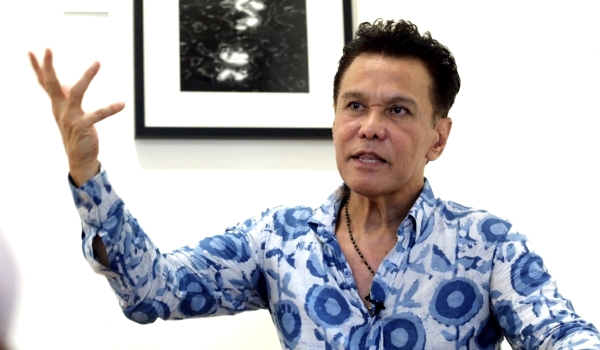
Indian classical dance performer Datuk Ramli Ibrahim is one of the best dancers and choreographers in Malaysia.
For the past 30 years, he has been performing in various countries across the world.
A pioneer in local Indian classical dance, Ramli has groomed many dancers besides his spectacular performance on stage in Malaysia.
Despite facing criticisms, Ramli, a Malay, is passionate about promoting Indian classical dances.
He envisions that the people in multicultural and multiracial Malaysia will embrace one another's cultures.
Ramli was interviewed by Sin Chew Daily at the Sutra Dance Theatre at Titiwangsa.
As the chairman of Sutra Foundation, Ramli, 70, is full of energy.
He shared about his passion for classical dance and his views on the recent controversy over the cancellation of his seminar in university.
Trained in ballet, modern dance and Indian classical dance, Ramli spends most of his time in Indian classical dance Odissi.
"I have been trying to promote the contemporary side of Odissi, or incorporate Odissi in modern dances," he said.
To Ramli, Indian classical dance can be merged and developed with contemporary dance.
To many, Odissi is originated from Hindu temples and is linked to Hinduism while Ramli is a Muslim Malay.
Isn't he worried about landing himself in a controversy?
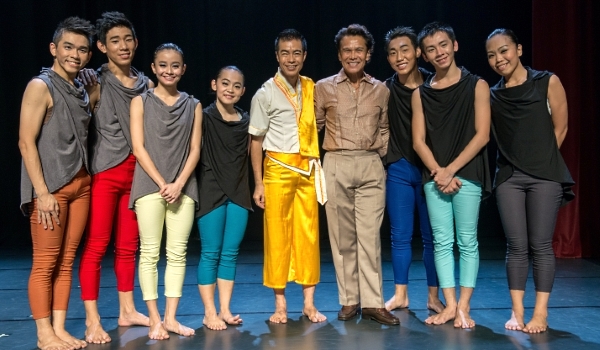
Ramli has been asked the same question over and again.
"Why not?" he replied.
Ramli, in a serious tone, said it was not him who opted Indian classical dance but rather he was picked by the dance!
"Since young I realized that arts was dwelling inside me. I am just complying to my destiny," he said.
Raised in a conservative Malay family in Kajang, Ramli said his parents are Muslims who are hardcore Umno supporters.
He spent his childhood days in Kuala Lumpur, and attended a Malay primary school at Jalan Pasar, Kuala Lumpur.
At the age of nine, he was already a regular guest for a 20-minute television show singing and reciting pantun.
Later he joined the Royal Military College.
Those were the days without passion for him. Then he studied mechanical engineering at the University of Western Australia.
While pursuing his degree course, Ramli did not give up dancing.
He learned ballet, music and stage performance, and was the only male student referred by the university to study in the renowned Australian Ballet School.
Ramli learned ballet and modern dance. Later he picked up Indian classical dance Bharatanatyam, followed by Odissi, known as one of the most difficult and sophisticated dances in the world.
"I was like walking on the tightrope between classical and modern dance. One of my legs was into the classical dance while the other into the modern world," he said.
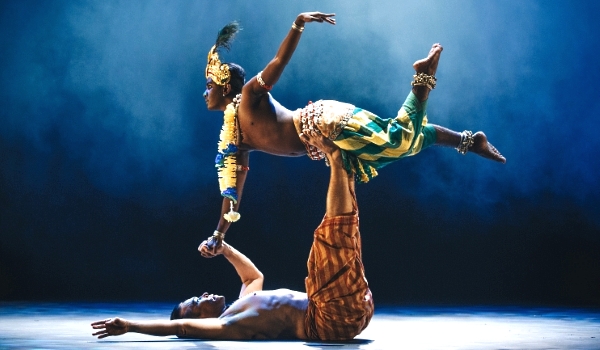
For many years, Ramli traveled abroad to perform, including in western countries.
In 1983, he came back to Malaysia to set up the Sutra Dance Theatre and Sutra Foundation.
He was promoting Indian classical dance for close to 30 years for cultural integration.
Ramli was acknowledged as the Living Heritage by the government of Malaysia and Living Treasure by the Unesco in 2012.
He received India's Padma Shri Award from Indian President Ram Nath Kovind for his 40-year contribution as a classical Odissi dancer and trainer, his Bharatanatyam performances, and the setting up of Sutra Dance Theatre in Malaysia.
Ramli is not the only non-Indian in his dance troupe. There are several Chinese dancers but all share the common interest in Indian classical dance.
"Malaysia is one of the most diverse countries in Southeast Asia. Chen Mei Mei, a Chinese and I, a Malay, perform the Indian dance together. This is not unusual.
"I know many great Chinese dancers who are also excellent Indian dancers in India.
"Now we can also find Korean, Japanese and Russian who are performing the Indian dance. I believe there are Iranians who learn Chinese opera and other types of arts in this world."
The Constitution of Malaysia and policy do not oppose Indian classical dance. Local audience love his performance.
"We should be proud that we have Chinese and Malay performing Indian dance," he said.
While Ramli has just delivered an online talk to the audience in Peru, South America, a local university canceled his talk at the very last minute.
Ramli was to talk about how dance transcended race for UTM on June 5, but the online talk was canceled at eleventh hour.
He was frank to say that the controversy was not narrowing racial and cultural barrier.
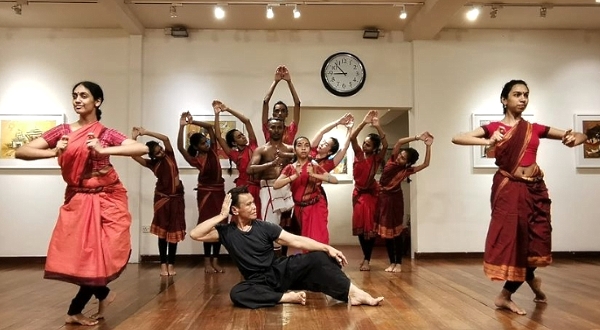
"The incident reflects that Malaysia is moving backwards in terms of racial ties," he said.
Citing an example, he said Mak Yong was banned for not complying with Islamic values. The dance ended up as one of the academic studies in institutions of higher learning.
"If the officers think that Mak Yong will remain in Istana Budaya and the National Academy of Arts, Culture and Heritage (ASWRA), they are absolutely wrong. Arts performance should be supported by the community for it to develop further," he said.
Ramli suggested arts and cultural to be separated from tourism in the government ministry.
"Arts and culture should be merged with education to establish a comprehensive and integrated environment in order to enrich the creativity of young people," he said.
"We live in a globalized village now. We should appreciate the diversity in our country as an asset instead of a problem. If you regard this as a problem, then it will be one," he said.
ADVERTISEMENT
ADVERTISEMENT







